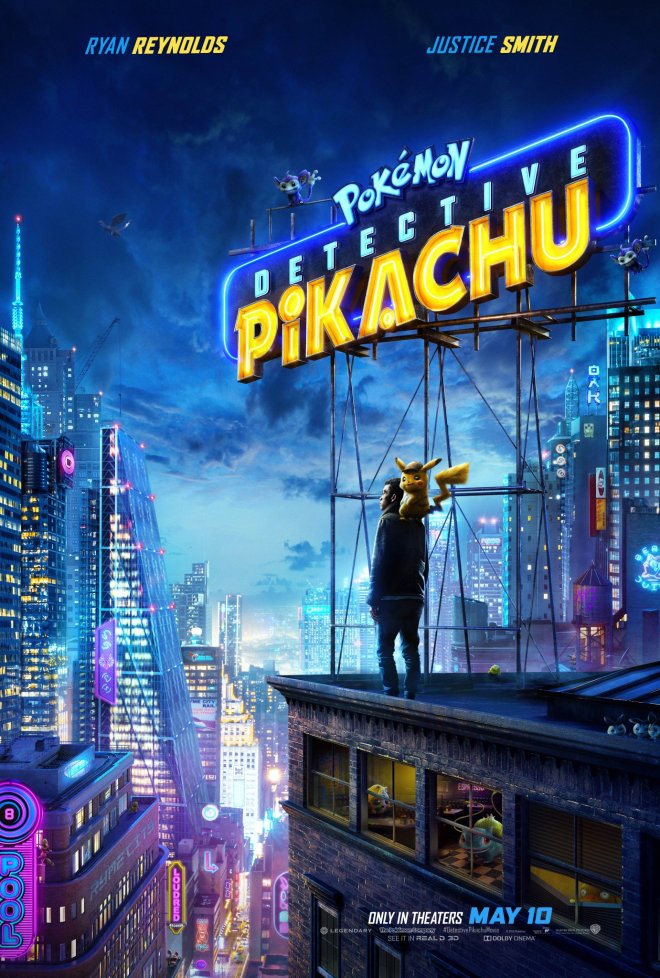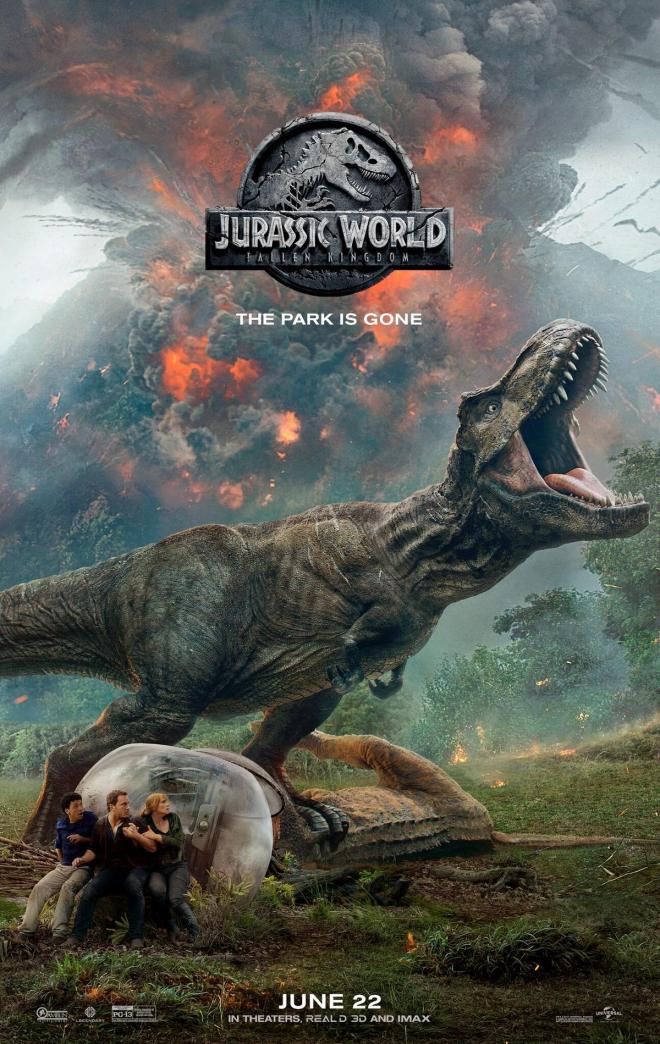
The Low-Down: There really is no better time for Hollywood to release its first live-action Pokémon movie. Generations of children – who are now adults with spending power – have grown up dreaming of becoming Pokémon trainers. Since their creation in the mid-1990s, the (mostly) adorable creatures known as Pokémon (‘pocket monsters’) have captured hearts and imaginations all over the world – through video-games, animated television shows, movies and more. The advent of Pokémon Go in 2016 has taken the franchise into the global mainstream, boosting its name recognition even among those who couldn’t have differentiated between a Bulbasaur and a Charmander just a few years ago. Fortunately, Detective Pikachu doesn’t come across as just a cynical cash-grab – it will delight its devoted fan base, but is also smart and charming enough to appeal to a wider audience.
The Story: Tim Goodman (Justice Smith) has lived a life as far away from his childhood dream of becoming a Pokémon trainer as you can get. Working quietly in the insurance industry, he refuses to even choose a Pokémon as his companion. One day, he receives a fateful call that brings him to Ryme City: a metropolis created by brilliant industrialist Howard Clifford (Bill Nighy), where humans and Pokémon live and work in harmony. Tim’s estranged father has gone missing, and the only clue he has left behind is Detective Pikachu (Ryan Reynolds) – whose clever insights and snarky observations can only be understood by Tim.
The Good: Detective Pikachu is a remarkably canny adaptation of Pokémon lore and legend. Fans will have a ton of fun (and might need multiple viewings) to spot all the Pokémon wandering in and out of frame – from dozing Slakoths to swooping Pidgeots, grieving Cubones and beyond. You might find yourself experiencing a sense of visceral joy at seeing these critters come to life, quite literally, and interact with actual human beings – not just on the page, or via pixels. Happily, though, the film doesn’t simply rely on fan service and affection to power through. There’s a welcome wit and warmth to much of its writing that’s impossible to resist, especially when it comes to the film’s titular electric-yellow hero – an adorable ball of energy that literally (and metaphorically) lights up the screen.
The Not-So-Good: If you’re a Pokémon neophyte, you might find yourself quite confused by audience reactions to Detective Pikachu, which don’t always match what’s happening on screen. You’ll still be able to follow the narrative fairly easily, but you’ll be lost when audience members freak out at the many Easter eggs and callbacks to decades of Pokémon canon. The film’s plotting also loses its footing towards the end, when the motivations of its main antagonist and the truth about Tim’s mysterious connection with Detective Pikachu become clear. At this point, it feels as if director Rob Letterman and his screenwriting team came up with the ending they wanted, and then reverse-engineered the rest of the film to make it work.
MVP (Most Valuable Pokémon): The answer is obviously Pikachu – a blend of brilliant character design and charismatic voice/facial-capture work by Reynolds. But one of the greatest joys of Detective Pikachu is that it doesn’t simply provide a showcase for Pikachu, already one of the most beloved of all Pokémon. Psyduck – a frazzled duck perpetually on the verge of combusting from stress – walks a fine line between hilarious and helpful. Even Mr. Mime, easily one of the weirdest and creepiest Pokémon ever created, gets a moment to shine – and in the kind of scene that’s so blissfully weird and silly that you can’t help but appreciate what the filmmakers are trying to do, even if they don’t always succeed.
Recommended? Yes. Detective Pikachu could have raked in the cash through brand loyalty alone. But the film is evidently the product of a great deal of love and care. Flawed as it is, this thoughtful re-imagining of the Pokémon franchise is fun, silly and charming in lots of the right ways.

